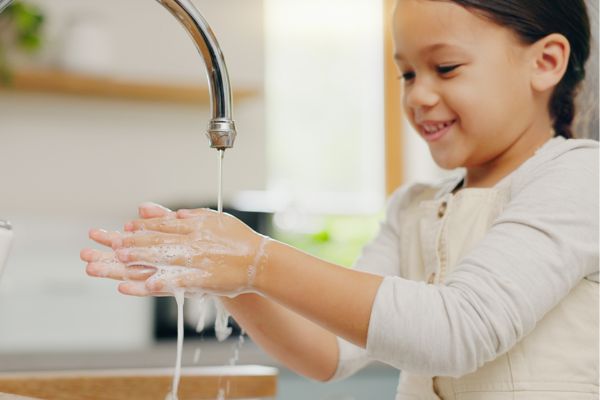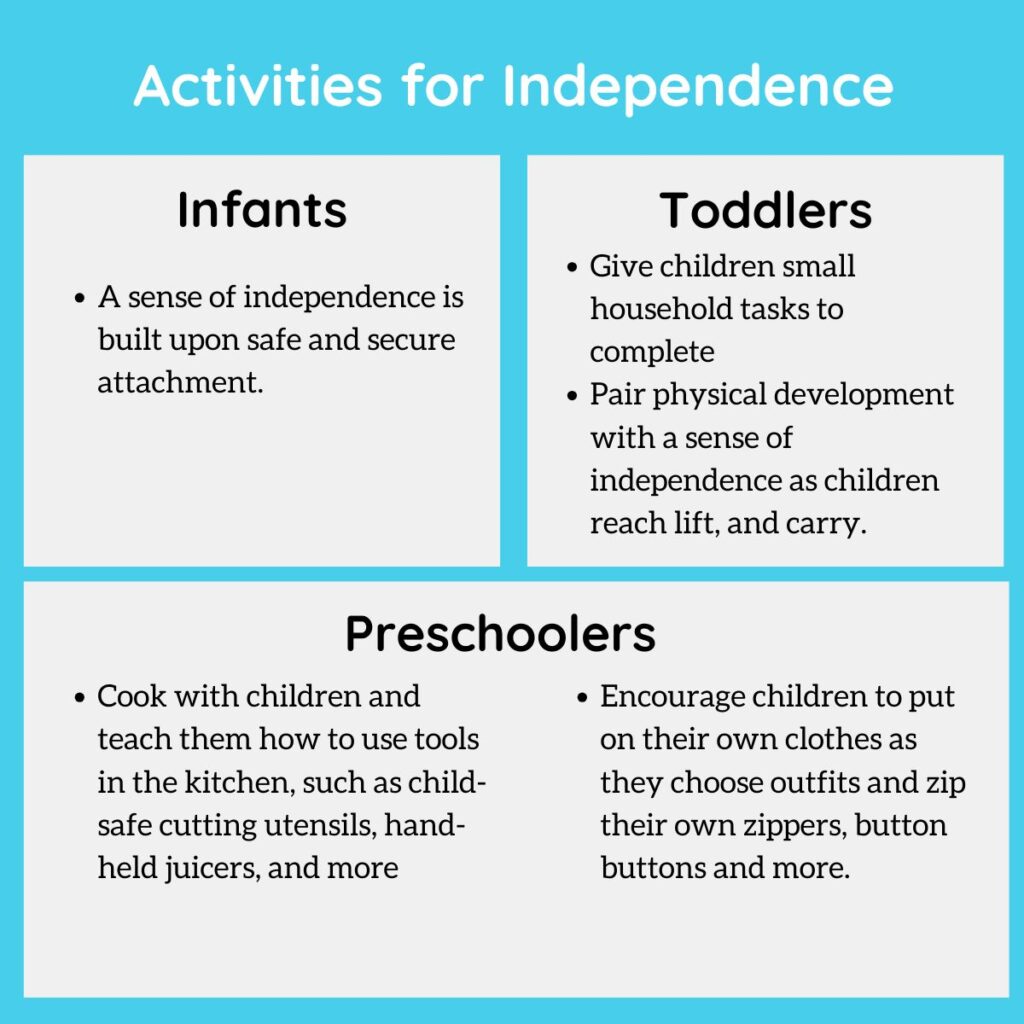
Independence leads to more confidence and a higher self-esteem, as children learn that they can do things for themselves. Adults can demonstrate that they trust children to follow directions, help around the house, show leadership, and solve their own problems.
As children grow and develop interconnected skills, educators may see a full range of responses in children’s developing sense of independence. Some children may be fiercely independent, to the point of defiance, while others may seek assistance with almost all tasks, even to the point of becoming despondent when they do not have help. This can be a delicate dance in the household and in early learning environments, and many cultures have different approaches to a sense of independence in early childhood. It is important to always respect families and their different approaches to independence, while also developing your own philosophy. A sense of independence is closely linked to positive approaches to learning, and adults can offer security and support while children develop this important skill.
In infancy, attentiveness and love from adults is actually closely tied to a sense of independence in the child. In other words, the infant has to feel safe and secure in order to develop a healthy sense of independence. As long as the infant sees that the adult is there to support them, the adult can encourage little acts of independence throughout children’s play. For example, they can place things intentionally that encourage reaching or rolling when playing on a mat. Adults can invite infants to help turn the page when reading together, and can give children choices between different toys or activities. This shows early on that adults value children’s independence.
In the toddler years, adults can give children tasks and chores that encourage independence. One of the reasons that Montessori and Reggio Emilia educational philosophies have become so popular, is that they believe in slowing down and working on independence with actionable tasks. For example, a popular activity in Montessori classrooms is to have a “Juicing Station”, like the activity in our Trees unit, that encourages children to use juicing tools to make their own juice. In fact, involving children in activities in the kitchen is wonderful! Educators can invest in child-safe kitchen tools that encourage children to explore making their own food. Children can help with safety reminders, following the recipe, preparing the food, and cleaning up before and after the activity. Children love cooking, setting the table, cleaning up, and serving food, as they enjoy the sense of independence. Many activities throughout our units are designed to encourage this sense of independence.
As children grow, we can give them even more opportunities to demonstrate their independence. One important area is in their self-care skills, as it relates to getting dressed, putting on their shoes, deciding which clothes are appropriate for the weather, and in expressing their needs, such as a need to go to the bathroom, wash their hands, or drink water. This may require extra patience on the part of the caregiver, but with time and practice children will learn how to put on their own shoes, zip their zippers, and button their own buttons, which in the long term will save adults stress (especially when working with a group of children!). A sense of independence is closely related to language and physical development, as children need fine motor skills in order to dress themselves, and language in order to discuss the types of clothing they would like to wear. We encourage you to spend lots of time outdoors and in a variety of weather conditions to foster these conversations. Additionally, outdoor play helps children to build a healthy attitude towards risk-taking, as they build an understanding of what their bodies can handle as it relates to physical agility and new sensory sensations.
At Rayz Kidz, we’re here to support you, the make planning your week easy and your days joyful. To find activities that focus on opportunities for developing independence along with the other 29 important skills of early childhood development, explore the Rayz Kidz app and the Rayz Kidz curriculum.
